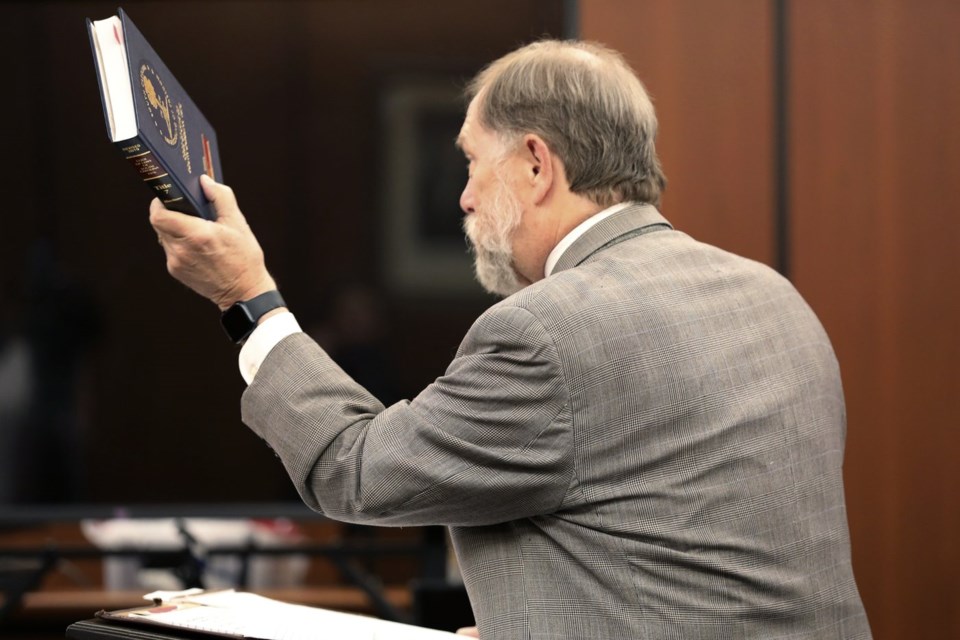COLUMBIA, S.C. (AP) — A judge in South Carolina ruled Friday that it is too late to reopen voter registration for nearly 1,900 teens after the state Department of Motor Vehicles failed to notify election officials that they checked the box to register as they got their driver's licenses.
The teens were 17 at the time they went to the DMV, but would be 18 by Election Day. A glitch in the DMV's computers did not identify the teens as qualified and did not present them with an additional electronic form certifying they were citizens, not felons and otherwise qualified to vote.
The American Civil Liberties Union sued to reopen registration on Tuesday, a day after early voting started in South Carolina. They provided several possible ways the teens could register and be allowed to cast ballots.
But Judge Daniel Coble said it is just too close to Election Day to do something so drastic as to alter the voting rolls.
“There is no effectual relief that this Court could grant and even if it attempted to, the relief sought would create disorder in the voting system,” Coble wrote in his ruling about five hours after hearing arguments.
Coble sided with lawyers for the South Carolina Election Commission, the SCDMV, the General Assembly and the Governor's Office. They all said while they were sympathetic toward teens who might miss their first shot at voting for president, it was just too late to solve registration problems with county election offices busy running early voting.
The potential voters have to be identified, checked that they are eligible and added to rolls. “None of this can happen before this general election,” state Election Commission lawyer Michael Burchstead said.
Around 6,000 additional teens affected by the glitch were still able to register after checking and seeing the process wasn't complete and they weren't on the rolls, including the 17-year-old who exposed the problem and notifying his mom, who then let a Democratic lawmaker know what was going on, prompting the lawsuit.
No other teen who wanted to vote but did not get registered has been publicly identified.
Lawyers for the state said some burden should have been placed on the teens to make sure they were able to vote before the registration deadline earlier this month.
The ACLU said being first time voters, they may not have been aware that clicking on a box that said “yes, I wish to register” meant they would not be registered.
“Our government failed these young voters, and now the same government is making excuses rather than making things right. When ‘It’s too hard to fix’ becomes an acceptable reason to disenfranchise voters, we know that there’s work to do,” ACLU of South Carolina Legal Director Allen Chaney said in a statement after the ruling.
In the first four days of early voting in South Carolina, more than 511,000 votes have been cast or about 15% of all eligible voters.
Coble ruled earlier this month to extend the registration deadline for about a week because of widespread damage and power outages from Hurricane Helene. He pointed out from the bench Friday that was “an act of God, not an act of man.”
The DMV has worked with the ACLU to try to determine the scope of the problem. They had to individually review every application that fit under the guidelines to see if the teen checked the box to register to vote.
And the lawyers for the state all said they would work to make sure it didn't happen again.
“We share with the ACLU the goal of free, fair, safe and secure elections,” said Kevin Hall, a lawyer for South Carolina Senate President Thomas Alexander.
But the ACLU said excluding anyone because of a government error is not fair.
“This is a case about a fundamental constitutional right,” Chaney said in court Friday. “First time voters are going to be wrongfully excluded from a historic election.”
Jeffrey Collins, The Associated Press



